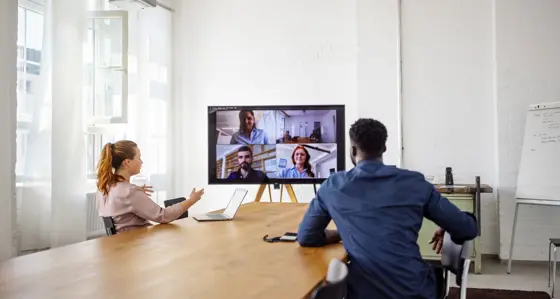
The challenge of engaging and supporting management teams within large transformation programmes
23 October 2023
Ways to build and maintain a trusted management team throughout a large transformation programme
- Bring experienced transformation professionals into your programme. You should bear in mind, the skills needed to kick a transformation programme off are not the same as those on a sharp end of delivery or indeed to run once the programme phase is over.
- Skills pathways for talented individuals and funding for courses can be implemented upfront.
- It isn’t possible though to maintain the same team across the lifecycle of any programme. At times, it will be necessary to bring in new talent to bridge the skills gap or to refresh the energy.
- Those that get the most career development out of a programme will be the leaders of the future and ensuring they are motivated throughout the change is important.
- The amount of change and risk that a business can absorb will be different.
- There are multiple variables within an organisational structure of the business that can influence this, ranging from geographical, cultural or legal factors of operating location(s), the age of a business, average tenure of staff or the funding model. For example, a firm backed by a Venture Capital fund will typically be more open to taking risks than one publicly funded. A successful management layer needs to be aligned to risk appetite and should take this into account when implementing plans.
- Large transformation programmes in any business can take years to deliver, so even when considering the businesses change appetite, there will be many people experiencing change fatigue.
- During these periods of fatigue, the management layer will need to know when to step in, this could be in the form of swapping individual roles so that key individuals can focus on the Transformation for example, or alternatively rephase or pausing streams of activity whilst the business recalibrates.
- Trust in management can be gained and lost easily in the way that messages are shared to their teams.
- A communications strategy and dedicated support in this role will be invaluable.
- Role of middle management is to make sure the comms is tailored - Take the top-level messages, they should have clarity on how to tailor messaging depending on the impact on the audience. Equality there should be clarity on when to keep comms consistent to retain precision on messages everyone should be aligned to.
- Consider your co-location strategy. Transformation leaders should be present in the locations that teams are delivering and being impacted by the delivery. This can be extremely impactful at creating an ‘in the trenches together mentality’, where the team are driven to create comradery around a shared purpose.
- Their presence should be authentic and not a parade of leadership each quarter. This could mean relocating management individuals on a permanent or semi-regular basis, or a commitment to having open channels of communications with virtual open-door policy between span of levels on the programme to foster a culture of openness.
- Consistency and focus. Once the programme is underway it is the job of the senior team to ensure the organisation continues to receive signals that the Transformation is critical and that there is continued focus on it. This means not creating whole new initiatives that will dilute focus on the original plan.
- Properly delegate responsibility to the management team so they can make key decisions and move at the pace required, without needing to go through pro-longed approval processes. This increased level of responsibility is also empowering and will be a key motivator and reward to the individual.
- To be an effective sponsor of a programme, the individual should be able to;
-
- Ensure a programme outcomes and company strategy are in alignment
- Effectively communicate goals, challenges and outcomes of the programme
- Navigate resistance from senior executives and create advocacy for the programmes outcomes within the leadership
- Provide ongoing direction to the project team during a project's lifecycle
- To be able to be great sponsors, exec members should be skilled in the foundations of programme management, and if they never been at the heart of a big transformation before, they should take training and/or mentoring. With effective sponsorship, programme leaders and management need to spend less time lobbying and can spend more time delivering.
Our Experts



Related Client Stories

Digital transformation of a global insurance company’s IT infrastructure
How do you fully refresh and upgrade IT to help employees and critical systems?
Read more
Helping a telco turn digital transformation into competitive edge
How can a large telco unlock the advantages of digitalised operations and agile ways of working?
Read more
Commercial transformation of a global mass media company enabled by Salesforce
Unifying a 1,000-strong global commercial organisation with Salesforce CRM
Read moreIs digital and AI delivering what your business needs?
Digital and AI can solve your toughest challenges and elevate your business performance. But success isn’t always straightforward. Where can you unlock opportunity? And what does it take to set the foundation for lasting success?